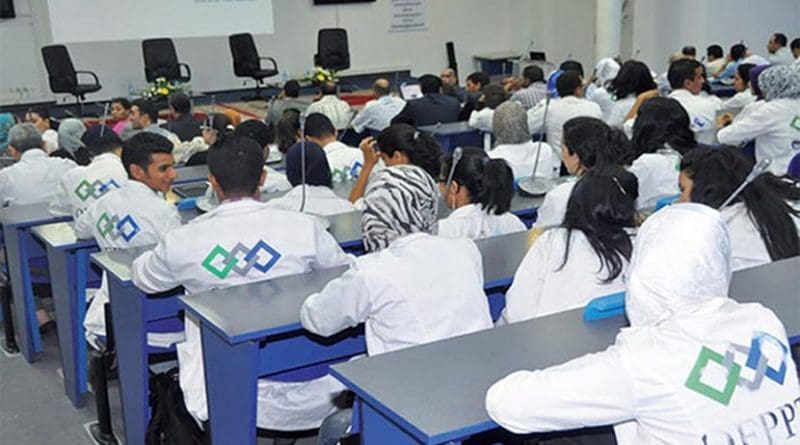Morocco To Upgrade Vocational Training To Prepare Youth – OpEd
Undoubtedly, Morocco has the potential to benefit from its young population. However, what is lacking nowadays is a coordinated strategy to give Moroccan youth employable skills. There is absolutely a major need for a more coordinated planning for the production of a skilled workforce required for economic growth.
Vocational training centers in Morocco offer non-formal trainings beyond the formal educational system under the Ministry of Education. As such, the qualification needs of disadvantaged persons can be fulfilled very flexibly. However what is missing is an institutional framework to organize, articulate, integrate, regulate and ensure the quality of training interventions and programs to suit demands and needs of potential employers.
Therefore, Morocco is in need to diversify and develop jobs and modernize pedagogical methods. To reach this ambitious goal King Mohammed VI presided over a meeting to task members of the government to elaborate a strategy to upgrade vocational training.
The meeting is in line with the implementation of the priorities and measures set by the monarch, especially in the Speeches on the Throne Day and Aug. 20. It mirrors the unwavering royal solicitude for the sector of vocational training as a strategic lever and a promising means to prepare youth for employment and professional integration.
In fact, in his speech dated Aug. 20, the King drew attention anew to the issue of youth employment, in relation mainly to the issue of balance between training and employment.
During the session, the King was informed about the propositions and measures to be taken by the concerned departments relating to the implementation of the royal instructions. They are mainly the restructuring of vocational training sectors, the creation of a new generation of training centers for young people, the systematisation of early guidance counseling to vocational sectors, the development of work-linked training, the learning of languages, as well as the promotion of youth entrepreneurship in their fields of competence.
The Sovereign gave his instructions for the development of new trainings in promising sectors and businesses, while upgrading training in the so-called traditional jobs, which remain the main providers of jobs for young people such as the sectors of industry, services, construction, agriculture, fisheries, water, energy and handicraft.
In this regard, King Mohammed VI has particularly emphasized the need to further develop the vocational training offer, by adopting new standards of quality, notably in the hotel and tourism sector so as to boost and back up the vital growth of this strategic sector.
The Royal attention also focused on vocational training in the health sector, including paramedical professions and health technicians, particularly in maintenance and repair of medical equipment where there is a real potential for jobs.
The sovereign has given his instructions to develop short-term skills trainings of about four months, integrating language and technical modules for people with experience in the informal sector, with a view to give them the opportunity to gain access to the formal sector and enhance their know-how and abilities.
At the end of this meeting, the Sovereign gave his instructions so that this committee, which is chaired by the head of government, elaborates and submits within three weeks a program of specific projects and measures for immediate application which will be financed notably with the participation of Hassan II Fund.
On this occasion, the committee will also present the progress of preparations for the National Meeting on Employment and Training scheduled before the end of the year.
Morocco is in need of a comprehensive approach in vocational training that will offer recipes for revamping the vocational system by making it demand-driven, and is inspired by international best practices for creation of skilled workforce on the basis of competence, rather than curricula-based training to face potential challenges for low‐skilled workers brought by skill‐biased technological changes and labour market conditions, which define the correlation between low‐skilled workers, employers and training opportunities

